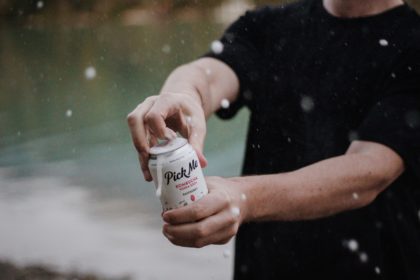
For the fifth year in a row, the KOMBUCHA Act was reintroduced to Congress. If the legislation passes, kombucha beverages would be exempt from excise taxes intended for alcoholic beverages. The act proposes to raise the alcohol by volume (ABV) threshold for kombucha from its current level of 0.5% to 1.25%.
“The past year has been incredibly hard on businesses in Oregon and across the country, especially as supply chains have been disrupted. Still, kombucha is one the fastest growing beverage industries in the world,” says U.S. Rep. Earl Blumenauer (D-OR). “There’s no reason why kombucha brewers and sellers should get taxed like beer. Our common sense legislation would eliminate this burden and support a burgeoning industry that has a major impact on Oregon’s food and beverage economy.”
U.S. retail sales of kombucha sales grew 2.4% over the twelve months though mid-July 2020, to $703.2 million, according to SPINS.
“Modernize Taxes & Regulations”
Blumenauer first introduced the bill in 2017 — and has reintroduced it every year since. Senator Ron Wyden (D-OR), the Senate Finance Chair, is the bill’s co-sponsor.
The word “KOMBUCHA” also has a double meaning — it is an acronym for Keeping Our Manufacturers from Being Unfairly taxed while Championing Health Act. The legislators understand kombucha is a fast-growing beverage category, especially in their home state of Oregon, home to many kombucha brands.
“The growth of kombucha production in Oregon and nationwide creates jobs and a beverage folks enjoy,” Wyden said. “It’s been a particularly difficult year for small businesses, and our bill would modernize taxes and regulations so these businesses can continue to grow and sell their products in stores across the country.”
Kombucha Brewers Lobby
Commercial kombucha brewers are especially concerned with the regulation. In 2010, Whole Foods and other retailers pulled kombucha off shelves as the Alcohol and Tobacco Tax and Trade Bureau investigated whether alcohol levels in kombucha were higher than what was printed on the label. And since then, consumers — and even other brands — have filed lawsuits against various kombucha brands, alleging alcohol levels higher than indicated.
Kombucha can keep fermenting after it’s made, as the yeasts continue to eat sugars. Under current law, if kombucha leaves a processing facility at 0.4% ABV, but increases to over 0.5% by the time it’s placed on grocery store shelves, the brewer would have to pay federal alcohol taxes like a beer brand.
Hannah Crum, co-founder and president of Kombucha Brewers International (KBI), the trade organization for kombucha brewers, emphasizes that kombucha producers fear constant repercussions from the law.
“These numbers were created over 100 years ago during prohibition,” says Crum, and notes there are no scientific studies on these ABV values. “Kombucha labels say ‘Alcohol is present’ — no one is trying to trick the consumer.”
Reads a statement from KBI: “ These laws were never intended to make kombucha subject to taxes designated for beer. Passing the KOMBUCHA Act under the next appropriations bill will relieve this unnecessary burden on kombucha brewers. Only kombucha above that level (1.25%) will be subject to federal excise taxes when this Act becomes law.”
KBI has actively lobbied for the bill’s passage. Big kombucha brands (GT’s and Health-Ade) have supported the bill actively. KBI — for the first time — is asking consumers to write to their government representatives (via a form on their website) to urge them to support the bill.
